Boiler Systems: All You Need to Know About Domestic Boilers
- Cost-cutting boiler systems for every type of home
- Lower energy bills by around £310 per year whilst cutting carbon emissions
- Use our online calculator to get a free quote for a boiler in seconds
Keeping your property supplied with hot water and heating, boiler systems play an essential role in our homes.
The size of your property and quantity of hot water you need daily will dictate which type of boiler system best suits your home. With energy efficiency now a national and global priority, by law you’ll need to ensure the boiler system you choose uses a condensing system.
Since 1st April 2005, the UK Government put a number of laws in place to guarantee the boiler systems we use are as energy efficient as possible to protect the environment. With old boiler systems only reaching a maximum efficiency of 78%, your new boiler will need to use a condensing system.
From heat-only to combi and system boilers, here’s all you need to know about boiler systems so you can understand which type will be best for your home.
In need of a new boiler? Use our quote comparison tool to find out how much you'd pay. It only takes a minute.

What's On This Page?
Click the links below and head straight to a specific section of the article.
What Are the Main Types of Boiler Systems Available?
There are three main types of boiler systems: heat-only, combi, and system boilers. Here’s how they differ.
Combi Boilers
Combi boiler systems heat water on demand, as and when it's needed.
Highly convenient to use and store, combination boilers are particularly desirable for contemporary homeowners because they do not require the installation of a separate water tank. Instead, the boiler system is housed in a single compact unit, which is usually wall-mounted.
Popular for smaller homes, combi boilers work by passing water over a heat exchanger, which heats up when hot water or heating is requested. Operated via a wall thermostat, the heated water is then either used for heating or for water outlets.
With modern lives so busy and space and aesthetics a priority for us all, it’s easy to see why a slick combi boiler unit, producing hot water and heating as and when required, holds so much appeal. Want to know more about combi boilers? Read our complete guide to combi boilers.
Heat-Only Boilers
Heat-only, or regular, boilers are traditional systems consisting of a hot water storage cylinder and a cold water storage tank (usually located in the loft), which are both connected to a single boiler.
With three units to store, heat-only boilers are more commonly found in larger properties.
These regular boiler systems work by heating water sent down from the cold water storage tank in the loft. The water is heated in the hot water storage cylinder. The presence of the hot water cylinder means it is possible to heat larger quantities of water with heat-only boiler systems because surplus hot water can be held in the hot water cylinder for later use.
System Boilers
System boilers seek to solve some of the logistical problems of a heat-only boiler. Updating the traditional large heat-only system for modern homes, system boilers operate without a separate cold water storage tank in the loft. These boiler systems don't need it because they work using mains water pressure.
Instead, a system boiler is a single unit containing both the hot water storage cylinder and boiler.
The inclusion of a hot water cylinder means a system boiler can still provide larger quantities of hot water needed by bigger families without taking up so much space.
Condensing Boilers
All three types of boiler are available as condensing models. By law, your new UK boiler will need to be condensing to meet increased standards in energy efficiency. The purpose is to lower the contribution domestic boilers have made to damaging greenhouse gases.
This is great news because whilst delivering heating and hot water via a more efficient system, condensing boilers also lower both your energy bills and personal carbon footprint.
Operating at energy efficiency levels of up to 99%, condensing boilers require less energy to work, saving you around £310 per year. They also have a lifespan of up to 15 years, meaning you won’t have to fork out for a replacement anytime soon.
Laws enacted in 2005 for gas boilers, and 2007 for oil boilers, made it illegal for any type of new domestic boiler systems to be anything other than condensing.
Legislation that followed in 2018 made it necessary for boiler systems installed across England to have an ErP rating of at least 92% or more, plus a thermostat and programmable timer.
Here’s how condensing and non-condensing boilers compare in terms of energy efficiency and environmental impact.
You can see how much money you'd save if you replaced an old, inefficient boiler with an A rated condensing boiler in the interactive graph below. This also depends on the house type. Energy Saving Trust estimates that the highest savings can be found from upgrading a G rated boiler, which can save you £475 a year. This is another reason why modern boiler systems are much better for your household.
Whichever type of boiler you choose, you can look forward to the reduction in energy costs your new condensing boiler will bring whilst aiding the reduction of carbon emissions. Get a quote today using our online form and see how much you’d pay for a new condensing boiler.
What Are the Advantages and Disadvantages of Different Boiler Types?
Combi Boiler Advantages
- Convenient: Delivering instant hot water and heating whenever you need it, combi boiler systems fit perfectly with contemporary living
- Space-saving: With only one wall-mounted unit to store, combi boiler systems are a neat design you can add to your home easily, whatever the size of your property
- Energy efficient: By only heating what you need for both your radiators and hot water, combi boilers are an energy efficient option which can lower your energy bills if you didn’t have one previously
Combi Boiler Disadvantages
- One outlet at a time: Combi boiler systems can only deliver hot water to one outlet at a time. That means if hot water is coming out of the shower and the hot water tap gets turned on in the kitchen, the water from the shower will go cold. If you live on your own or even in a very small family unit this might not be a problem but for a larger family or property, the limited capacity will be inconvenient so a system or heat only boiler might be better
- High pressure: Boiler systems that heat water straight from the mains require good water pressure in order to operate properly. If the water pressure is too low, you won’t get enough water
- Limited capacity: Without the extra storage tank, a combi boiler delivers a smaller quantity of hot water than a system or heat-only boiler so if you have a bigger family, a combi boiler probably won’t be able to keep up with the high use you require
Heat-only Boiler Advantages
- Multiple outlets: Additional hot water storage means heat-only boiler systems can serve multiple hot water outlets at the same time, making them ideal for larger families and properties
- Suitable for low water pressure: With cold water stored over time and sent gushing down from the loft to the boiler, a regular boiler system will still work well if your property has low water pressure
- Complements a range of systems: Operating at a lower pressure than more contemporary boiler types, traditional heat-only boilers will still work if you have an older boiler system or ageing radiators. Heat-only boiler systems can also operate with solar panels
- Can out-play a broken boiler: There’s nothing worse than when your boiler system packs up. However, the multi-system design of a heat-only boiler means you can utilise the separate water tank in an emergency and manually heat the water with an immersion heater if your boiler breaks down
Heat-only Boiler Disadvantages
- Cumbersome: Three units to store, with a loft ideal for the cold water tank, make heat-only boiler systems particularly cumbersome and unsuitable for smaller properties
- Wait time: A hot water cylinder only heats a certain amount of water at designated times. That means although extra water is stored in the cylinder, if it all gets used up, you’ll have to wait for more to be heated. Additionally, if left waiting around for too long, the hot water reserve in the cylinder will need to be heated up again
- Hazard: With the cold water tank in the loft, there is a possibility that you could experience a leak or, during winter, the tank can end up getting frozen
System Boiler Advantages
- Flexible storage: A single unit provides the welcome flexibility of being able to fit in a range of locations in the home. Boiler systems with flexible storage are more convenient
- Don’t need a loft: Minus the cold water storage, a system boiler is ideal if you don’t have a loft or spare room for a header tank
System Boiler Disadvantages
- Space: Although a system boiler only consists of one unit, it is larger because it includes the hot water cylinder, so you’ll need to have enough space to store these boiler systems
- Low water pressure: Unlike a regular boiler system, the water in a system boiler arrives straight from the mains so if you have low water pressure, you’ll still experience a low flow of hot water with a system boiler
The best boilers of 2024 compares all types of boiler.
Boiler Systems: Which is Best for My Home?
Combi boilers: To enjoy a combi boiler at its best, you’ll probably want to have a smaller home with a low number of occupants and bathrooms, as well as good water pressure
Heat-only boilers: If you have a bigger family or property, an older home or low water pressure, you’ll probably want the higher quantities of hot water a heat-only boiler can provide
System boilers: If you want a greater hot water supply but don’t have a loft, a system boiler is ideal, providing you have the space to store your new unit
Get a tailored quote from our expert team of installers in minutes for a clear idea of how much you’ll pay. Or head to our guide to boiler costs to see how the prices of boiler systems compare.
Related articles
View all Boiler articles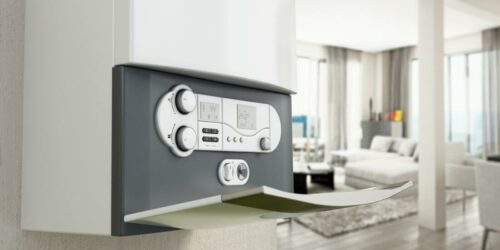
Top Tips When Buying a New Combi Boiler

Save on Heating by Keeping Your Boiler at 60°C
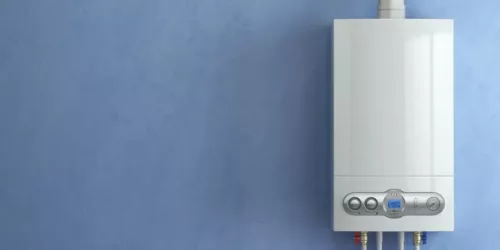
Smart Boiler Installation: All You Need to Know
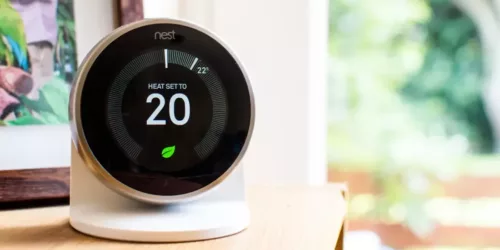
Smart Thermostat Guide: All You Need to Know
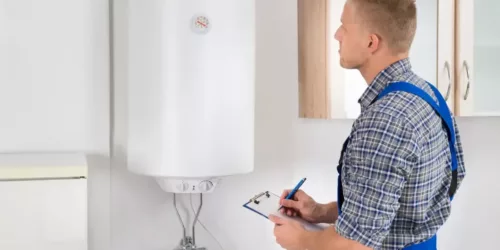
What Size Boiler Do I Need for My Home?
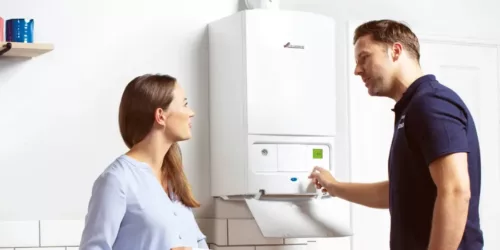
The Complete Guide to Worcester Bosch Boilers
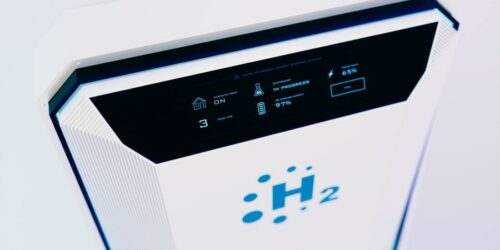
Hydrogen Boilers: The Ultimate Guide







